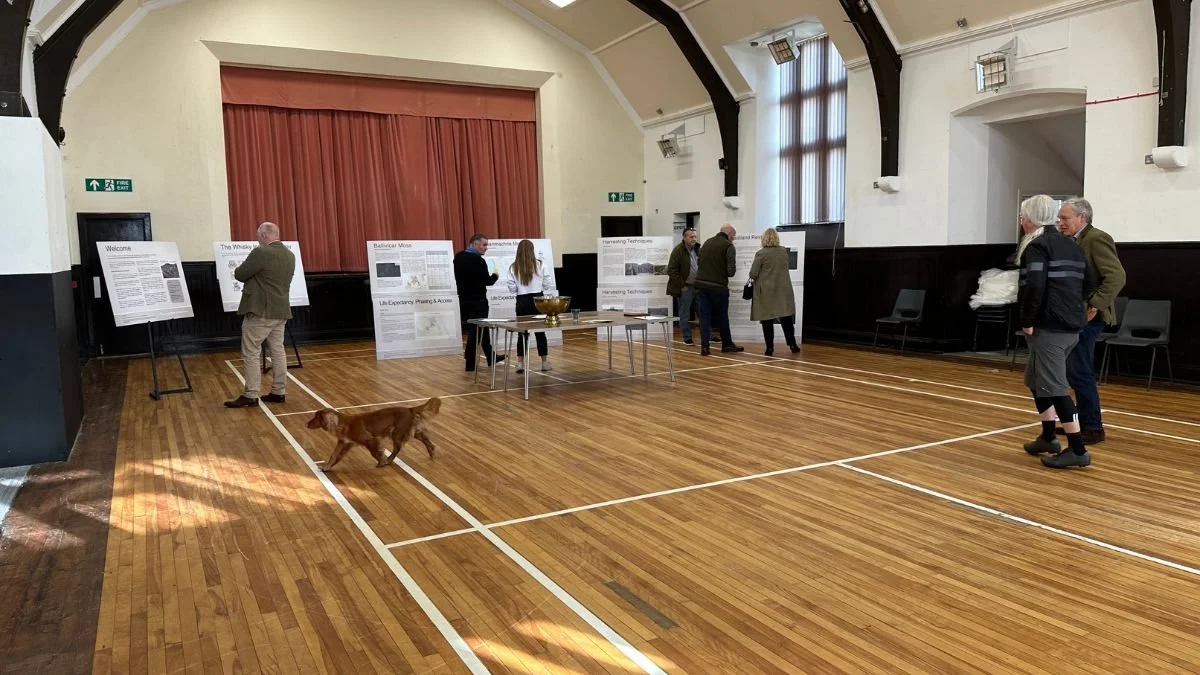Balancing the National Housing Crisis with Local Community Concerns
Housing is one of Scotland’s most pressing challenges, particularly in rural areas, where a shortage of affordable, sustainable homes is contributing to depopulation and economic strain. The Scottish Land Commission’s latest report highlights the critical need for more housing and suggests that public land acquisition could help drive development.
However, while there is an undeniable national need, those involved in land ownership and development often encounter strong local opposition when proposing new housing projects. This is a recurring theme in many of the community engagement and public consultation events we facilitate, landowners come forward with well-considered housing proposals, yet face resistance from local stakeholders concerned about infrastructure, environmental impact, and the changing character of their communities.
This raises an important question: how do we strike a balance between delivering much-needed homes at scale while ensuring local voices are heard?
The Challenge: National Demand vs. Local Concerns
Scotland needs more housing, and the case for increasing rural supply is well documented. Key challenges include:
A growing demand for affordable homes in rural communities, where young families, key workers, and local businesses struggle to access housing.
Landowners and developers willing to build new homes often encounter resistance from local stakeholders, leading to delayed or stalled projects.
Concerns over infrastructure, aesthetics, and environmental impact dominating public debate, sometimes at the expense of recognising the economic and social benefits of well-planned developments.
While opposition is often rooted in genuine concerns, if we fail to build at the pace required, rural communities will struggle to retain and attract the people and infrastructure they need to thrive; schools may close and shops/cafes/pubs and other local amenities will no longer be viable businesses.
Striking the Right Balance
Achieving the right balance requires early, meaningful community engagement that fosters mutual trust and understanding. From my experience in public consultation and community engagement, I believe the following is crucial:
1. Shaping Developments With Communities, Not Just For Them
Public engagement should not be a tick-box exercise but an opportunity to shape housing developments around local needs. Communities must feel like active participants in decision-making, not just recipients of pre-determined plans.
2. Clear, Transparent Communication
Many housing proposals face opposition due to misconceptions about scale, purpose, or impact. Developers and landowners need to clearly articulate the benefits of new housing.
3. Exploring Alternative Models
Innovation in rural housing models could help bridge the gap between local concerns and national need. Some promising approaches include:
Community-led housing projects, where local groups co-develop solutions.
Public-private partnerships, ensuring that housing meets both commercial and community needs.
Mixed-use developments, integrating housing with employment opportunities to reduce strain on infrastructure.
4. A National Strategy That Respects Local Priorities
While national policies set the direction, successful rural housing delivery requires flexibility at a local level. Councils, landowners, and communities must work together to ensure that local housing needs are met in ways that align with Scotland’s broader housing goals.
The Road Ahead: Constructive Conversations Over Conflict
The reality is that Scotland’s housing crisis cannot be solved without rural development. However, if we do not address the concerns of local communities, progress will continue to be slow and contentious.
The conversation needs to shift from “whether we should build housing” to “how we can build the right homes, in the right places, in a way that works for everyone.”
By fostering constructive, open conversations, we can move beyond opposition and delays towards solutions that benefit both communities and the nation as a whole.
Lucy Laidlaw Communication specialise in facilitating meaningful conversations between landowners, developers, communities, and policymakers. If you’re facing challenges in rural housing engagement, we’d love to help.
Get in touch to discuss how we can support your next project.

